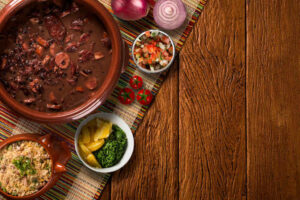Instant noodles, chocolate cake, French fries, ice cream, grandma's chicken soup: when you think of a affective food (or comfort food), that brings you a feeling of comfort, what dish comes to mind?
The answer depends a lot on where you are, after all, food has everything to do with the culture of the place where we were born and live. Therefore, when we talk about comfort food, this expression means something different in each country, according to a BBC Future article —in the UK, for example, mashed potatoes, macaroni and cheese and scrambled eggs on toast appear at the top of the list.
And it also depends on our mood. Although many people think that we resort to comfort food In difficult times, some research shows that this is not the case.
One study carried out in 2010 in the United States shows that participants who were experiencing more turbulence were more likely to choose foods they had never tried before (and not their usual favorites). And that people with more stable lives preferred the usual potato flavors.
For researchers, this may signal that difficult periods can make us more open to experiencing new possibilities — and that comfort food It's for when we return to our comfort zone.
Comfort food Is good mood food?
As comfort foods are generally quite high in calories, researchers have wondered whether they can improve our mood when we are experiencing moments of stress or sadness.
The answer: it depends on the genre. One study which interviewed around 1,400 people in North America shows that men resort to comfort food when they want to celebrate, while women eat comforting foods when they are sad (and therefore feel guilty after eating).
These findings suggest that perhaps the comfort food bring us something that goes beyond individual joy or comfort, points out BBC Future. offering something more subtle than joy. In some situations they help us to have a feeling of belonging.
In the article “Chicken soup is really good for the soul”, researchers show that foods that bring us comfort evoke feelings linked to our relationships (like mother's or grandmother's chicken soup).
For the people interviewed, these foods had a history of strong and safe connection, and related to their identity. On the other hand, those who didn't have a history of secure connections didn't feel this way. In other words: the effect of comfort food It depends on the experiences we have had in life.
Comfort foods around the world
What this research shows is that context matters more than any other aspect in explaining what our comfort foods favourites. We eat for many emotional reasons: to maintain a good mood, to celebrate, to pass the time. And what goes on our plate differs from culture to culture.
In India, a beloved comfort food is the khichri, a lentil and rice porridge topped with pickles. The Chinese like the huge lion's head meatball, made with seasoned ground pork.
For a Syrian person, comfort food can be the mujaddara, a lentil and bulgur dish filled with caramelized onions. And for the French, it is tartiflette, the potato casserole with cheese and lard.
In a final twist, BBC Future shows that there is a situation in which we would rather comfort food outside our comfort zone: when we are traveling.
Researchers interviewed people who were in two Taiwan airports, far from home, perhaps a little intimidated by the local cuisine. And travelers who didn't like trying different foods were the ones who were happiest eating their comfort food.
“At least in some situations, familiar foods play the role we imagine — providing security, a sense of belonging, and a stable anchor,” the article says.


